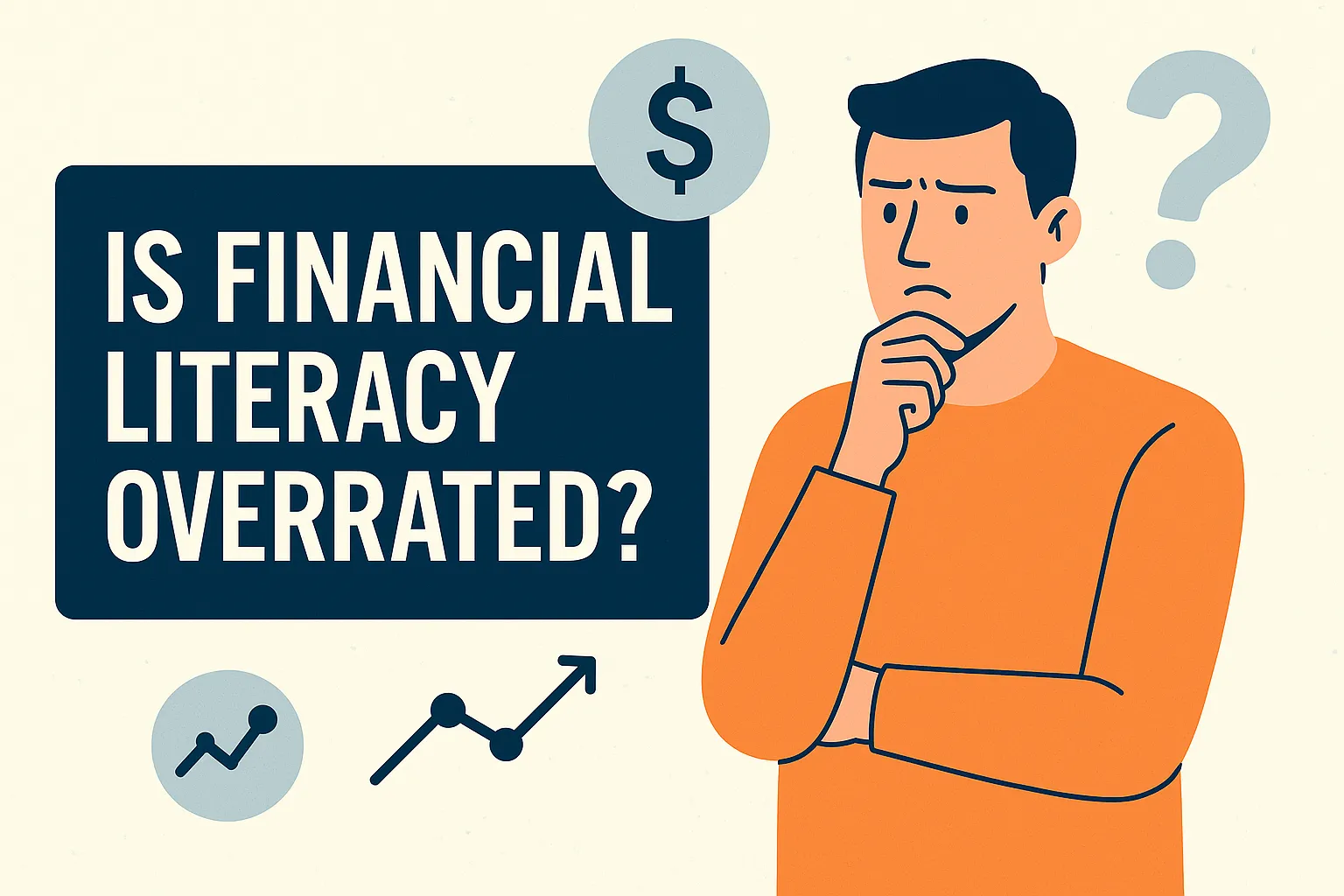Is Financial Literacy Overrated?

According to the Journal of Financial Literacy and Wellbeing (2023), less than 30% of US adults could correctly answer three basic financial literacy questions. However, those with higher financial literacy were more likely to exhibit positive financial behaviors, such as planning for retirement, preparing for economic emergencies, and maintaining manageable debt levels.
The issue? Information doesn’t automatically change behavior. This article explores why financial literacy—while important—can often be overemphasized. It explains why habits, discipline, and emotional control may matter more than knowing how to calculate compound interest.
Key Takeaways
- Financial knowledge doesn’t always translate into action—especially under stress.
- Behavioral consistency can often beat technical mastery when it comes to building wealth.
- Emotions, habits, and systems play a larger role than most financial education frameworks acknowledge.
- Overemphasizing literacy can create false confidence—or paralyze action.
- Small behavioral shifts might often lead to better results than large knowledge gains.
The Limits of Knowing
In theory, someone who understands budgeting, diversification, and tax strategies should outperform someone who doesn’t. But in practice, outcomes might often hinge on behavior—not knowledge.
Hypothetical: Imagine two investors. One has a degree in finance but frequently chases hot stocks, panics during downturns, and overspends. The other knows only the basics, but automates contributions, avoids emotional decisions, and rebalances once a year. Over time, the second investor is likely to come out ahead.
Financial literacy helps—but behavior is what compounds.
Behavior Is the Real ROI Driver
According to a 2022 study published in the Journal of Family and Economic Issues, saving habits and the amount saved have a significantly stronger relationship with financial well-being than other factors like financial shocks and income volatility. This suggests that consistent saving behavior is a key predictor of financial well-being. Some examples:
- Avoiding lifestyle creep
- Continuing to invest during market dips
- Holding diversified portfolios instead of “lottery ticket” stocks
- Not overreacting to news cycles or peer comparison
Many people know these principles. Fewer apply them. The gap between knowing and doing is where most wealth is gained—or lost.
Financial Education Can Backfire Without Context
Financial literacy programs might often focus on definitions and math—how credit scores work, how compound interest grows, or how mutual funds differ from ETFs. But without psychological framing, this can lead to:
- Overconfidence: “I know the terms, so I must be managing well.”
- Paralysis: “I need to learn everything before I act.”
- Over-optimization: “I’ll wait until I have the perfect plan.”
So what? Knowledge alone doesn’t inoculate against fear, inertia, or impulsivity. Behavior needs tools, systems, and reflection—not just facts.
Systems Beat Willpower
Many people rely on discipline to manage their finances. But behavioral finance teaches that discipline erodes under stress, fatigue, or complexity. That’s why systems matter:
- Automating investments avoids decision fatigue
- Using default contributions helps overcome inertia
- Visual dashboards make spending and saving more tangible
- Framing money decisions in terms of values (rather than goals) improves follow-through
Financial literacy is useful—but systems make good behavior easier to sustain. It’s not about knowing more—it’s about building an environment where better outcomes are the default.
What Actually Drives Results
Long-term wealth can often built by doing a few things consistently:
- Spending less than one earns
- Investing early and might often
- Avoiding panic during volatility
- Keeping fees and taxes low
- Revisiting plans, not reacting to noise
None of these require advanced financial knowledge. What they require is clarity, emotional regulation, and behavioral follow-through.
Behavioral trap: Many investors chase knowledge as a proxy for progress—reading, learning, calculating—but avoid action. In reality, imperfect action may often beat perfect intention.
A mindset shift that helps: Treat financial literacy as a tool—not a prerequisite. The goal isn’t to know everything. It’s to build habits that work, even when emotions run high or life gets messy.
How optimized is your portfolio?
PortfolioPilot is used by over 40,000 individuals in the US & Canada to analyze their portfolios of over $30 billion1. Discover your portfolio score now:






